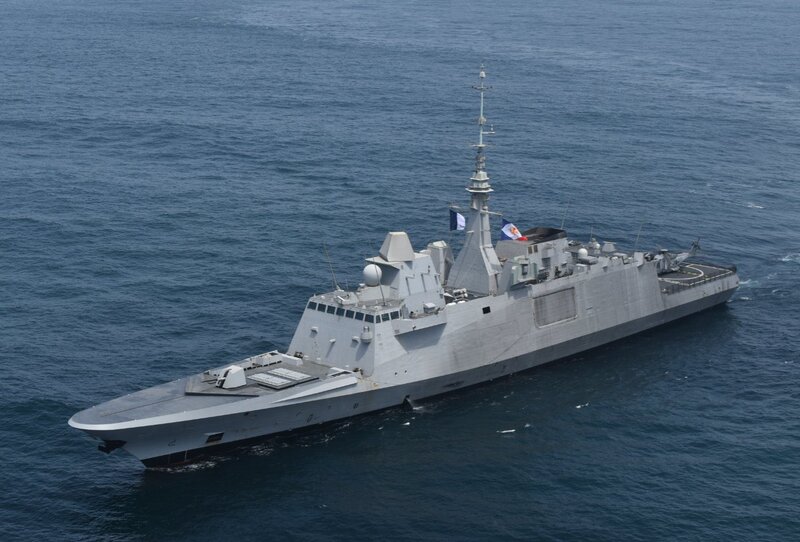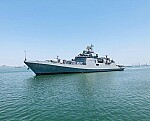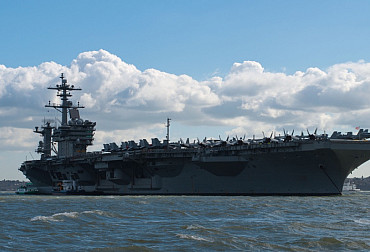EU launches naval mission in the Red Sea
EU foreign ministers approve a naval defence mission in the Red Sea. The aim is to restore and protect freedom of navigation in the area, which has been terrorised by Yemeni rebels since late last year with attacks on commercial and military ships. EUNAVFOR ASPIDES will be headquartered in Greece and will involve frigates from France and Germany, among others. The mission is being conducted in cooperation and coordination with US allies.
According to the founding document, Operation ASPIDES, or 'Shield' in Greek, is intended to contribute to the restoration and protection of freedom of navigation in the interests of the EU, the region and the wider international community. "The mandate of EUNAVFOR ASPIDES is: to protect vessels from ongoing attacks, to escort vessels, to reinforce the maritime presence in the area - by monitoring, assessing potential threats and sharing information in coordination with partners," reads the official EUNAVFOR release. Partners in the region are mainly the United States and the United Kingdom, which were the first to engage in counter-attacks against the Iran-linked Yemeni Houthi rebels. They have begun targeting commercial and military vessels using drones and missiles in response to an alleged alliance with Israel following its attack by Hamas terrorists.
"The European Union is responding swiftly to the need to restore maritime security and freedom of navigation in a highly strategic maritime corridor," EU foreign policy chief Josep Borrell said in a statement, according to Reuters. "As part of its defence mandate, the operation will enhance maritime situational awareness, escort vessels and protect them from potential attacks at sea in multiple ways," Borrell added. The entire mission will be headquartered in Larissa, Greece. The allocated budget for this action is 8 million euros for the time being. 130 people from all over Europe are to work there, with a further 30 people forward deployed in a mobile headquarters on one of the frigates. To this must also be added the separate crews of each of the international vessels. Commodore Vasileios Gryparis is the commander of the entire operation and Rear Admiral Stefano Costantino is the combat operations commander. The area of operation is around the main sea lanes, in the Strait of Bab al-Mandab, in the Strait of Hormuz, but also in the Red and Arabian Seas or in the Gulf of Aden, the Gulf of Oman and the Persian Gulf.
ASPIDES was established in accordance with UN Security Council Resolution 2722, which calls for an end to Houthi attacks on cargo ships. Meanwhile, the rebels have also begun openly attacking military vessels already in the region to monitor the situation. One of the Western partners is France, which has already been involved in the actions, with one of its two modern frigates, the Alsace and the Languedoc, which would operate in the Red Sea as part of the EU mission, recently shooting down two Yemeni drones. According to France24, the French defence ministry said its navy intercepted multiple drone attacks from Houthi-controlled territory and then destroyed a pair of aerial drones in the vessel's immediate vicinity. No damage or injuries are reported.

The Germans are also engaged in defensive maneuvers with their pride of the navy, the frigate Hessen, which is kept running by 240 people on board. Its deployment has already been approved by the local MPs and the price tag has been put at around €56 million, so that the ship can proceed from Crete, where it has been docked until now, to its destination. "It is no exaggeration to say that this is the most serious and also the most dangerous naval mission in decades," German Defence Minister Boris Pistorius said during a personal inspection of the frigate, according to Deutsche Welle. "But Germany simply cannot stand by and do nothing," Pistorius continued, adding that as one of the world's strongest economies, Berlin must lead the effort.
But attacks by Yemeni Islamists have not diminished despite a clear international response, and Western allies say their activities are on the rise. For example, the giant British-registered cargo ship Rubymar carrying a dangerous cargo of fertiliser is almost sunk after a recent strike, and other US military vessels have repelled new drone attacks in recent days. The Pentagon also registered an attack for the first time underwater, where the U.S. Navy managed to destroy an underwater unmanned vessel before it could hit its target. The Americans say this incident also demonstrates Iran's continued support for the rebels, including the supply of advanced weapons. In any case, the Houthi attacks have changed the current mode of shipping between Europe and Asia, with many companies opting for alternative routes, but they also involve a two-week detour around Africa.









